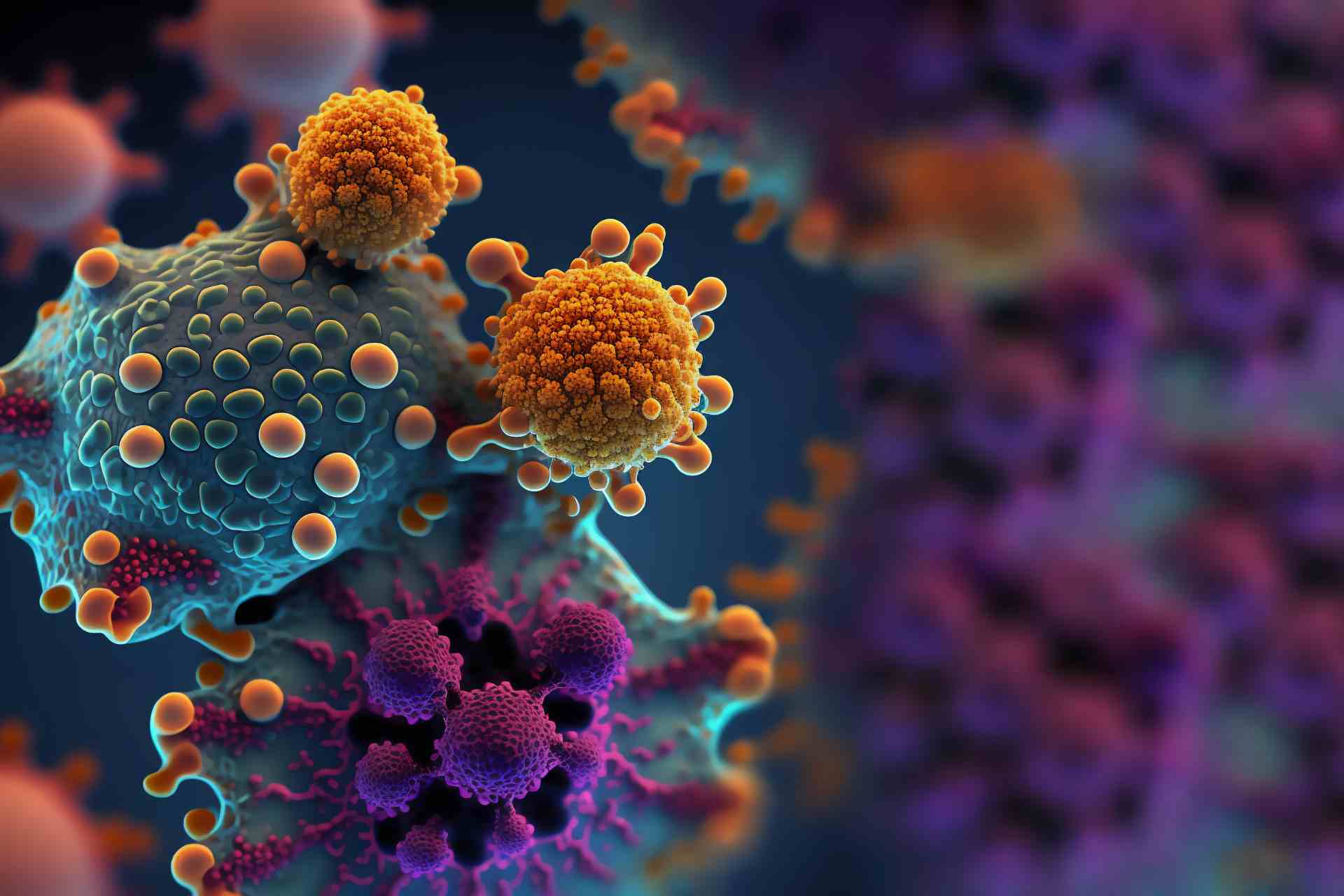What is already known
Several studies suggest that the gut microbiota influences a person’s response to immunotherapy, an approach that activates the body’s immune system to fight cancer. However, it is unclear whether gut microbes could improve the efficacy of CAR-T — a type of immunotherapy that has opened up new treatment options for people with blood cancers that do not respond to conventional treatments.
What this research adds
Researchers analyzed the gut microbiota of more than 170 people with lymphoma who relapsed or did not respond to prior treatment. People who had taken broad-spectrum antibiotics before receiving CAR-T therapy had a less diverse microbiota and poorer treatment outcomes than those who had not taken antibiotics. Among people who had received no antibiotics, those who had higher gut levels of Bifidobacterium longum had an improved overall survival after CAR-T therapy. The researchers also created a machine-learning algorithm to predict which patients are more likely to respond to CAR-T therapy based on their microbiotas.
Conclusions
The study identified microbiota signatures that may allow clinicians to predict the outcomes of CAR-T immunotherapy.
A new type of cancer therapy has shown promise for people with blood cancers that do not respond to conventional treatments, but less than half of patients respond to it. Now, researchers have found that gut microbes can influence the efficacy of this therapy for people with lymphoma.
The study, published in Nature Medicine, identified microbiota signatures that may allow clinicians to predict the outcomes of the treatment. The therapy, which is called CAR-T, is a form of immunotherapy — an approach that activates the body’s immune system to fight cancer, and it relies on changing a patient’s T cells in the laboratory so that they will attack cancer cells.
CAR-T immunotherapy is currently used to treat people with leukemias or lymphomas that do not respond to conventional treatments, but complete remission is only achieved in up to 40% of patients.
Because several studies suggest that the gut microbiota influences a person’s response to immunotherapy, researchers led by Eran Elinav at the German Cancer Research Center analyzed the gut microbiota of 172 people with lymphoma who relapsed or did not respond to prior treatment.
High-risk antibiotics
The researchers set out by exploring the association between antibiotic use prior to CAR-T immunotherapy and treatment outcomes in the study participants.
People who had taken broad-spectrum antibiotics, including meropenem and cefepime, in the three weeks prior to receiving CAR-T therapy had a less diverse microbiota and poorer treatment outcomes than those who had not taken antibiotics or had taken narrow-spectrum antibiotics.
The poor outcomes were likely due to a suppressed immune system in people who had taken broad-spectrum antibiotics, the researchers found.
“Based on these results, we defined ‘high-risk antibiotics’ as meropenem, cefepime, ceftazidime and piperacillin–tazobactam antibiotics because they were associated with significantly reduced responses to CAR-T cell therapy,” the authors say.
Response prediction
Roseburia, Bifidobacterium, Lactobacillus and Eubacterium species were the most abundant commensals in people who had taken no antibiotics or ‘low-risk’ antibiotics, whereas Prevotella, Veillonella and Enterococcus bacteria were most abundant in people who had taken high-risk antibiotics.
Among people who had taken no antibiotics or low-risk antibiotics, those who had higher gut levels of Bifidobacterium longum, Eubacterium eligens and Parabacteroides merdae showed an improved overall survival after CAR-T therapy, the researchers found.
The team also identified several microbes, including Bacteroides, Ruminococcus, Eubacterium and Akkermansia, that were predictive of CAR-T efficacy. This allowed the researchers to create a machine-learning algorithm to predict which patients are more likely to respond to CAR-T therapy based on their microbiotas. The algorithm was then validated with data from a group of lymphoma patients.
“We hope these data will lead to an improved understanding of the relationship between the microbiome and patient responses to CAR T-cell therapy,” says study co-author Michael Jain at Moffitt Cancer Center. “Understanding the causal nature of possible microbiome contributions to CAR T effectiveness and adverse effects may enable better understanding of differential CAR T-cell activation, persistence and clinical efficacy, and ultimately the prediction of response to CAR T prior to treatment,” he says.









